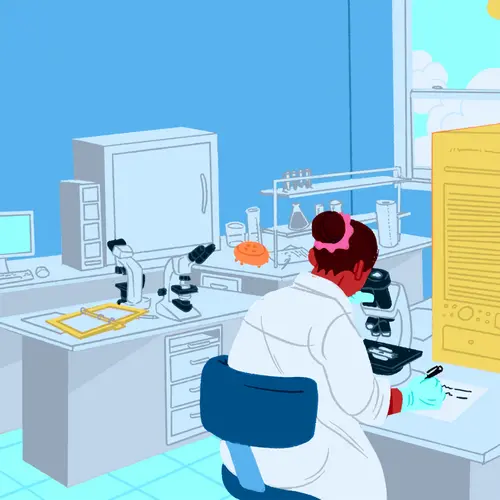You’ve got the diagnosis: It’s cancer. Now, your doctor will come up with a plan to treat it. Between surgery, chemotherapy, radiation, and other tools, how does they choose what’s right for you?
Many issues come into play when a doctor is planning treatment, but there are three main things doctors think about, says Christopher Filson, MD, a urologist and prostate cancer specialist at Emory University’s Winship Cancer Institute in Atlanta.
1. The cancer itself. Doctors will go through all your test results to find out how “risky” the cancer is, Filson says. Cancers that have been found early generally need less treatment than more advanced ones, which might need a more complex plan.
2. Your overall health. Doctors will consider your age and any other health problems you have. Understanding how frail or robust a person is becomes important when talking about treatment options.
3. Your wishes. “Everybody values different aspects of cancer care differently,” Filson says. In some cases, people will accept a slightly higher risk of cancer coming back in exchange for something else, like a treatment with a lower risk of side effects or picking radiation to avoid surgery.
After you get a clear picture of your situation, you and your doctors will decide on care goals. Is the cancer curable? If not, can treatment slow its growth and prevent symptoms? From there, you can think about a specific therapy to try.
Common Cancer Treatments
Your doctor may recommend one of these treatments:
Surgery. You may need an operation to remove a tumor. Surgery is most successful when the disease hasn’t spread to other parts of your body. Depending on what kind of cancer you have, it may be your best chance at a cure. Doctors also may suggest surgery to treat problems caused by cancer, like a tumor that’s blocking your intestines.
Radiation. Doctors use it mostly to treat tumors that are only in one area of your body. Radiation kills cancer cells or damages them so they can’t grow. High-energy rays from a machine target the cancer from outside your body. Or your doctor may suggest putting a small radiation implant near the tumor to fight it from the inside.
Most people with cancer get radiation at some point.
Whole-body therapy. Usually, this means chemotherapy -- strong drugs that can treat cancer that has spread in your body. More and more, though, it also includes drugs that use your body’s immune system to fight cancer, Filson says.
The combination of treatments you need and the order in which you get them differ, depending on your specific cancer.
For instance, doctors often use chemo after surgery to kill any lingering cancer cells and keep the disease from coming back. In other cases, it can shrink a tumor in order to save an organ, says Lidia Schapira, MD, a breast cancer specialist.
The side effects of these treatments vary, and people with other health problems might not be able to handle how these strong therapies make them feel.
If that’s how you feel, your cancer specialist should talk with your other doctors to come up with a plan that treats the cancer but doesn’t hurt you, Schapira says. Chemo, for example, “can be delivered in doses and schedules that can be tolerable even by people considered frail.”
“Most of the time, we can find something that helps” she adds.
Clinical trials. Scientists use these carefully controlled studies to see how new treatments or procedures compare with the therapies available now. Your doctor may mention the option to you if they know of a trial that matches your type of cancer. Medical advances happen because of these trials. Plus, it’s possible you’ll get a therapy that isn’t available elsewhere that may cure or control your cancer, Filson says.
But, he adds, “These trials are there for a reason.” Often, the researchers are examining tests and treatments that may or may not be helpful. They’re also trying to make sure they’re safe. Talk to your doctors about all the pros and cons of a clinical trial before you decide to join one.
More to Consider
Your doctor will take into account a few other things before they make a recommendation for you:
Insurance coverage. Cancer testing and treatment are expensive, and your insurance may not cover everything. You and your doctors may have to weigh whether a therapy is worth the out-of-pocket costs, Filson says. “I wish I could say I didn’t have to worry about it. But particularly with newer tests, [insurance] does come into play. Sometimes you have to find more traditional methods of diagnosing and treating cancer if patients can’t afford to pay.”
Work schedule. “We sometimes have to modify the treatment plan so that the person can continue to work and provide,” Schapira says. “For instance, if the person has a day off, we can treat the afternoon before so she can rest,” she adds.
Your support team. Decades ago, doctors made cancer care decisions without involving the patient, Filson says. But times have changed. Today, it’s a shared process. He and Schapira agree that partners and other loved ones also need to be included in treatment decisions. “You could consider it a kind of family affair -- the input from everyone is important,” Filson says.
You may feel like you need to decide on treatment quickly and get started right away. But in many cases, you have time, sometimes weeks or months. Make sure you have all the facts you need to make a decision you and your family are happy with, Filson says. “If that means getting a second opinion, do it,” he says.
Don’t feel uncomfortable if you change your mind. “The last thing I would want is a patient going into a treatment because they were too embarrassed to back out,” Filson says.
Your doctor’s office should be “a no-judgement zone,” he adds.

